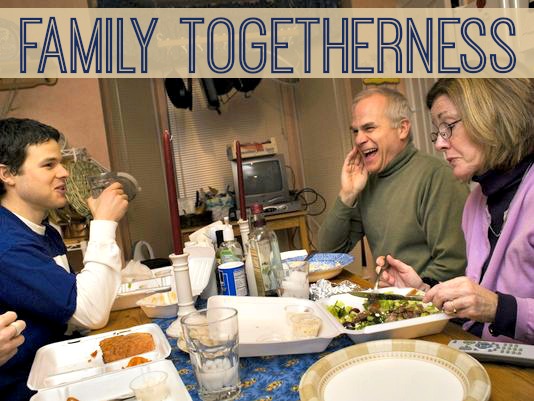A new study of United States Census data shows that 30.3 percent of millennials, young adults ages 18-34, are still living with their parents. The report is called “Young Adults: Then and Now.” It pulls together Census numbers showing that, since 1980, the slice of the population in this age group that still lived with their parents hovered around 22 to 24 percent. But, between 2009 and 2013 the percentage of millennials still living at home shot up and is at the highest level ever.
This is widely seen as a negative trend and is blamed on the slow recovery from the recession that began in 2008. I shared this information with the students in an ESL conversation class I help teach. The students are from India and Turkey. They understood the economic hit this demographic group is taking. But this particular effect of it would not be of such concern in their countries. In Turkey, girls don’t leave their parents’ home until they marry. In India, young people live with parents even after marriage at which point the young couple lives with the husband’s family.
This recovery has been rough on American millennials. Many finished college and headed into unemployment or underemployment. Compounding the problem, older workers and others who might, in a better economy, have left their jobs for new opportunities, making room for millennials, have been staying put, opting for the security of the job they have.
In our society, where independence is valued, this situation is challenging for both young people and for parents.
Could there be a silver lining? Perhaps, family togetherness?
There’s another new study out. It comes from the Family Research Council’s Marriage and Religion Research Institute (MARRI) which recently released its “Index of Family Belonging and Rejection.” MARRI also combed through Census data, examining the proportion of 15 to 17-year-olds who grew up in intact married families. They found that only 46 percent of kids in this age group grew up with both biological parents who stayed married. Only 17 percent of black teenagers had the privilege of growing up with their married mom and dad. MARRI’s research also shows the positive impact of the intact family, especially the intact family that attends regular worship, on so many outcomes for kids.
So, young people, if your job situation keeps you at home with mom and dad longer, take advantage of the family togetherness that some other cultures take for granted. Contribute with tangible work around the house. And parents, you can practice your role as friend, counselor, and example from close proximity. There are blessings here.
Marriage is God’s plan to organize the economy. Sadly, the slow recovery has contributed significantly to the drastic decline of marriage. In turn, the decline of marriage further stunts household formation and hurts the economy. Millennials tend to wait to marry until they can afford a wedding. They’ve got things backwards.
 Listen Online
Listen Online Watch Online
Watch Online Find a Station in Your Area
Find a Station in Your Area











 Listen Now
Listen Now Watch Online
Watch Online
